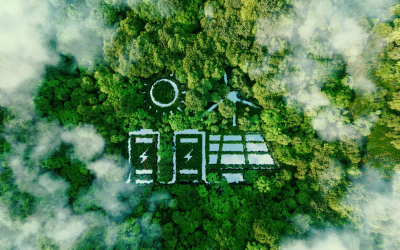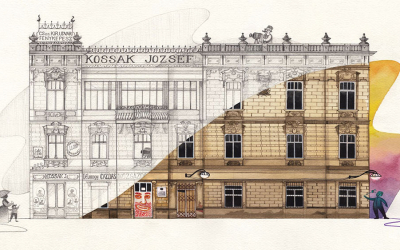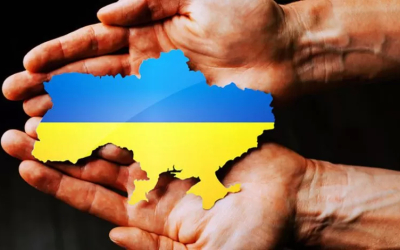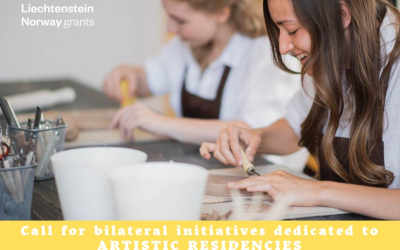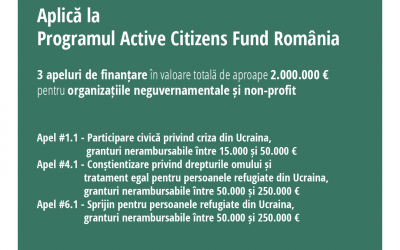The open call is available for applications from Romania and from Norway, Iceland or Liechtenstein
News
The budget of the Local Development Programme was supplemented by 5 milion euro, reaching the amount of 91,941,176 euro
A number of 24 initiatives were contracted within this call. Their total value is 9,213,105 RON. The list can be consulted here.
UEFISCDI, within the Research Programme 2014-2021, used the financial envelope granted by our grants - 89,610 Euro, thus managing to offer real-time humanitarian support to refugees from Ukraine during 2022
Bilateral cooperation between artists from Romania and those from the Donor States (Norway, Iceland and Liechtenstein) is the objective of this call for the year 2023.
Artists from Ukraine are also eligible. The file will be submitted by an entity from Romania or from the donor states and will include the participation of 1 or 2 artists. In the case of entities that send 2 artists, one of them must be from Ukraine.
The lists of selected projects (26) for financing following the technical and financial evaluation stage within the Active Citizen Fund Programme have been published
Within this call, proposals for mobility projects in university education (2022) may be submitted
3 new calls were launched today to support NGOs directly involved in the refugee crisis in Ukraine.


